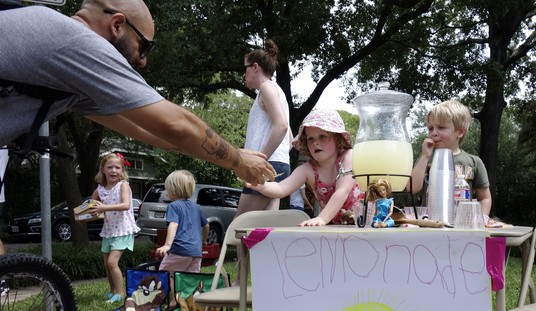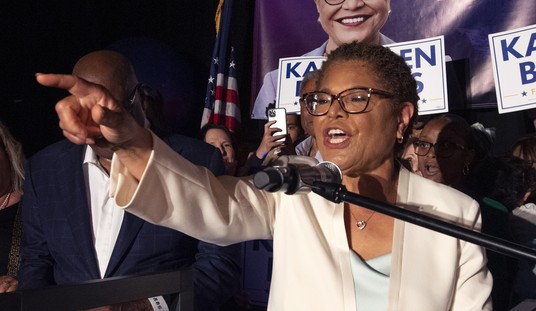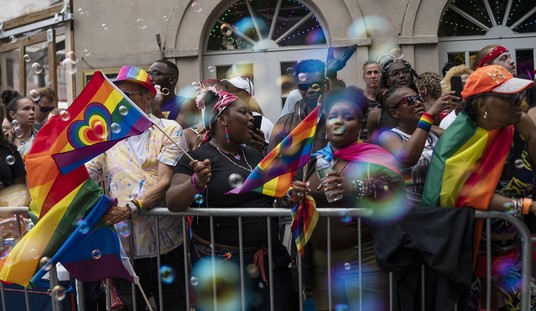
In terms of his smirk and his smugness, impeachment inquiry witness David Holmes gives fired FBI agent Peter Strzok a run for his money.
Holmes, a political counselor at the U.S. Embassy in Ukraine, saw nothing wrong with discussing a call between the President and an ambassador with his “buddies.”
While reading the transcript of Holmes’ testimony from his closed-door session before Schiff’s panel last week, Breitbart’s Joel Pollak discovered an amazing exchange with Rep. Jim Jordan (R-OH). The two were discussing a cell phone call U.S. Ambassador to the E.U. Gordon Sondland had made to President Trump during lunch at an outdoor restaurant. Holmes told lawmakers he was able to hear President Trump’s voice clearly although the call was not on speakerphone.
Holmes couldn’t quite recall how many people he told about the conversation. But he just couldn’t help telling the six friends he vacationed with shortly afterward.
(Via Breitbart)
MR. JORDAN: You told friends you were sitting by an ambassador who was talking on his cell phone with the President of the United States, you told your buddies about that?
MR. HOLMES: Yeah.
MR. JORDAN: How many people did you teIl?
MR. HOLMES: Sir, again, I don’t recall specifically. I don’t recall specifically. I was traveling with six friends.
MR. JORDAN: Six fniends?
MR. HOLMES: Yeah.
MR. JORDAN: So now it’s up to nine people. When you come back on the 6th, who all did you tell then?
MR. HOLMES: In the meeting with Ambassador Taylor, I told him, and the other people in that meeting would have heard it. So, as I said before, I believe it was my deputy — sir, I don’t recall who was in the room at that instance when I told them — I guess what I’m saying is that — I’m focused on telling Ambassador Taylor, he’s the person I’m there to brief. And I don’t always know who else was in the room.
It gets worse. At Thursday’s public hearing, Rep. Mike Conaway (R-TX) asked him to commit to exercising more discretion regarding presidential communications in the future.
MR. CONAWAY: Mr. Holmes, in your role, you’re privileged to an awful lot of stuff. Official things, and things that are best kept between you and the official folks that you deal with. Is there an expectation among the principals that you represent that you will exercise some discretion in what you share with others about what goes on?
MR. HOLMES: Yes, sir.
MR. CONAWAY: In your public — in your testimony in your deposition you made the — first off, we had a hard time pinning down the number of people that you’ve actually had this conversation with about the conversation that you overheard. Now, our ambassador had no expectation of privacy, you know, blustering around, doing what he’s done, but we couldn’t figure how many people you actually shared that information with. And I would argue that the information is unflattering to the president, unflattering to the ambassador, and that your discretion is, you know, at odds here. Your testimony, your deposition said you shared that with folks who you thought would find it “interesting.” I’d argue that everybody on the back row would find it interesting, but I don’t know that that’s necessarily criterion. On a go-forward basis, can you articulate in the future when you’re privileged to certain circumstances that would be embarrassing to the principal — that if it’s official, that you share with the ambassador, fine, but that folks outside the embassy or folks even within the embassy that don’t have a need to know, that you wouldn’t regale them with your recounting of those instances?
MR. HOLMES: Sir, I think it was Gordon Sondland who showed indiscretion having that conversation over a phone line —
MR. CONAWAY: The question is of you, Mr. Holmes. Your discretion. Gordon Sondland did not expect privacy. I got that. But you’ve been in a room 17 years where people trust that whatever went on in the room and left, that you kept it to official channels and didn’t share all that information with other folks. I’m just asking you to argue on your own behalf that “interesting” is not some sort of a criterion that you would use when you share information from meetings. A simple, straightforward question.
MR. HOLMES: Sir, I shared the information I needed to share with the right people who needed to know it. I did not share any information that people didn’t need to know.
Schiff admonishes Conaway, saying, “We allow witnesses to answer questions, even though those asking the question don’t want to hear the answer.
Conaway shoots back, “Does that apply to you as well.” Of course, Schiff ignores Conaway’s comment.
Holmes never explained why his six vacation buddies needed to know.
When he was called out on it, he replied, “I think it was Gordon Sondland who showed indiscretion having that conversation over a phone line.” Which is very true. Sondland showed extremely poor judgement when he called President Trump from an outdoor restaurant in Ukraine, especially given there were others at the table. Astonishingly bad judgement.
However, Holmes was being asked about his own behavior. We’d like to think our diplomats would exercise discretion when they encounter sensitive government information. I’m sure that sharing information about this call, at the very least, would be violation of State Department protocol. It might even be a violation of possibly U.S. law.
But, it’s okay. It was only about Trump.
(Relevant segment starts at 7:17:00.)













Join the conversation as a VIP Member